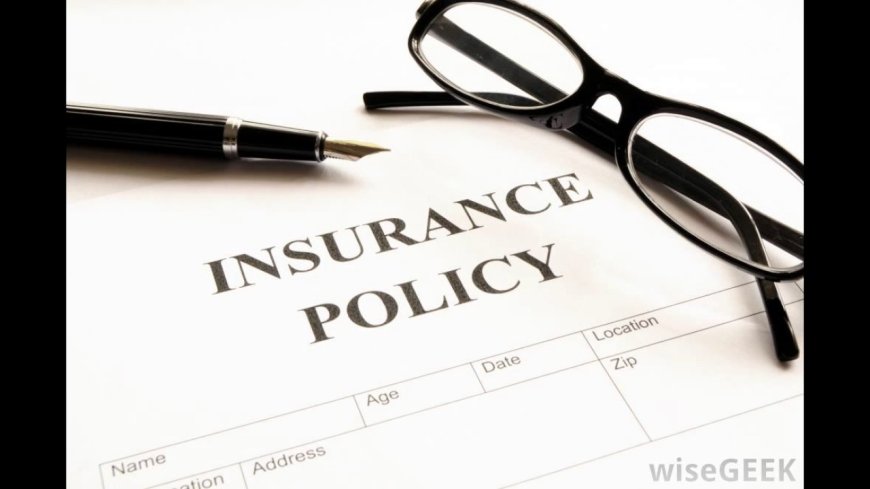The Ultimate Guide to Real Estate Insurance in 2025
Navigate the future of property protection with this 2025 guide to real estate insurance—covering modern risks, policy types, and smart strategies for investors

The world of real estate is evolving quickly. With market fluctuations, climate-related risks, and the rising value of property, ensuring your real estate investment is protected has never been more important. As we move through 2025, real estate owners—whether residential homeowners, commercial landlords, or investors—must understand the changing landscape of property protection. One of the most critical, yet often overlooked, aspects of safeguarding property is real estate insurance.
No matter how stable your investment may seem, unforeseen circumstances like natural disasters, tenant damage, or liability lawsuits can create serious financial risk. That’s why real estate professionals and property owners alike are putting more focus than ever on Real Estate Insurance.
What Is Real Estate Insurance?
Real estate insurance refers to a variety of insurance products designed to protect property owners against losses related to buildings and land. Unlike general homeowners or renters insurance, real estate insurance covers a broader set of risks depending on the type of property, whether it's owner-occupied, leased, or commercial.
Policies can include protection against:
-
Fire and natural disasters
-
Theft and vandalism
-
Liability claims
-
Loss of rental income
-
Legal disputes related to property ownership
-
Environmental damage (e.g., flooding or mold)
Why Real Estate Insurance Is Crucial in 2025
In 2025, real estate continues to face new and complex challenges. Here's why having the right insurance coverage is more critical than ever:
1. Increased Climate Risks
Wildfires, floods, hurricanes, and earthquakes are becoming more frequent and severe. Insurance providers have adapted their policies to reflect this increased risk, but premiums and coverage terms are also changing. Without proper insurance, a single natural disaster could destroy years of investment.
2. Legal Liabilities Are on the Rise
Property owners are more exposed than ever to lawsuits—from slip-and-fall incidents to disputes with tenants or zoning authorities. Real estate insurance helps shield you from costly legal battles and settlements.
3. Higher Property Values Mean Higher Stakes
As property prices continue to climb, so do the potential financial losses. Insurance ensures that if the worst happens, you won’t have to start over from scratch.
“Owning a home is a keystone of wealth… both financial affluence and emotional security.” – Suze Orman
Types of Real Estate Insurance Policies
Choosing the right type of real estate insurance depends on your role and the nature of your property. Here’s a breakdown of the main types:

| Insurance Type | Who It’s For | Coverage Highlights |
|---|---|---|
| Landlord Insurance | Residential property landlords | Building, liability, and loss of rental income |
| Homeowners Insurance | Owner-occupied residential homes | Structure, contents, and liability |
| Commercial Property Insurance | Business or commercial landlords | Building, contents, business interruption, liability |
| Builder’s Risk Insurance | Developers or contractors | Property under construction, tools, and materials |
| Title Insurance | Buyers and lenders | Protects against legal defects in ownership |
| Flood and Earthquake Insurance | Any property owner | Protection against specific natural disasters not included in standard policies |
How to Choose the Right Real Estate Insurance Provider
Choosing an insurance provider should never be rushed. Here are some steps to help ensure you make the best decision:
-
Assess Your Risks
Understand the geographic, legal, and usage-related risks associated with your property. -
Get Multiple Quotes
Don’t settle for the first provider. Compare coverage, exclusions, premiums, and deductibles from at least three different companies. -
Look for Specialized Providers
Some insurers specialize in certain types of real estate or commercial property, offering more tailored coverage and expert services. -
Read the Fine Print
Understand what is not covered as much as what is covered. Pay attention to exclusions and coverage limits. -
Bundle When Possible
If you own multiple properties or need various insurance products, bundling them under one provider can save money and simplify management.
What’s New in Real Estate Insurance for 2025?
The insurance landscape has shifted to accommodate modern demands. In 2025, several key trends are defining how real estate insurance works:
-
AI-Powered Risk Assessment: Insurance companies now use artificial intelligence to assess property risk profiles more accurately and offer dynamic pricing.
-
Climate-Adjusted Premiums: Insurers are adjusting premiums based on proximity to flood zones, wildfire-prone areas, and other climate-related threats.
-
Green Property Incentives: Properties with environmentally sustainable features may qualify for lower premiums.
-
Flexible Coverage for Remote Landlords: With the rise of remote real estate investing, insurers are offering digital-first tools to manage and file claims easily.
-
Cyber Insurance Add-ons: For smart homes or tech-enabled commercial buildings, cyber protection is becoming a relevant option.
Real Estate Insurance Tips for Owners and Investors
Whether you're new to property investment or managing a portfolio, here are a few tips to optimize your insurance strategy:

-
Review Your Policy Annually: Market values, laws, and risk profiles change. Ensure your coverage reflects your current situation.
-
Insure for Replacement Cost, Not Market Value: Always cover the cost to rebuild—not just what your property is worth.
-
Consider Liability Limits Carefully: Especially for landlords, a lawsuit could cost millions. Make sure your liability coverage is robust.
-
Document Your Property: Photos, videos, and inventory lists help speed up claims and ensure you’re compensated fairly.
-
Don’t Underestimate Tenant Impact: If your tenant damages the property or defaults, will your policy cover it? Be clear about what's protected.
Conclusion
In 2025, owning real estate comes with exciting opportunities and considerable risks. From environmental disasters to legal claims and market volatility, your property is exposed in more ways than ever before. That’s why having the right real estate insurance isn’t just a formality—it’s a fundamental part of your financial security strategy.
Whether you're a homeowner, landlord, or investor, real estate insurance gives you the protection, peace of mind, and resilience needed to navigate a changing world. Don’t wait for a disaster to realize the value of coverage—invest in the right policy today and secure your future
































































































































































